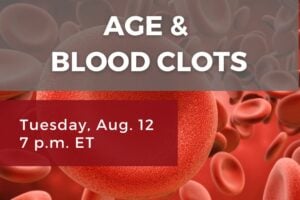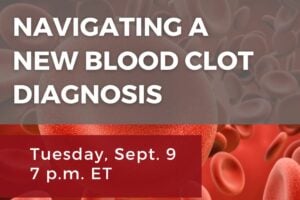DVT and PE Prevention Is Possible
At its September meeting, the National Blood Clot Alliance (NBCA) board of directors issued a resolution calling for the broad scale prevention of blood clots associated with hospitalization. . This “Hospital Quality Improvement Resolution” outlines a comprehensive strategy for reducing hospital associated risks for blood clots (Deep Vein Thrombosis (DVT – leg clot) and Pulmonary Embolism (PE – lung clot).
The Resolution was developed by NBCA’s Medical and Scientific Advisory Board (MASAB). MASAB Chair, Jack Ansell, MD (Lenox Hill Hospital, New York), stated that “DVT/PE is the most common cause of preventable hospital deaths and that there is strong evidence that preventive measures will substantially reduce hospital associated DVT/PE illness, deaths and costs.”
NBCA President, Randy Fenninger said “that patients, the general public, healthcare professionals and policy makers all need to be fully informed about the importance of preventing hospital associated blood clots (DVT/PE).” Fenninger added that “all patients entering hospitals should be armed with the information they need to know (including questions to ask healthcare professionals) about the risks of blood clots in the hospital and after discharge.”
MASAB member Greg Maynard, MD and hospitalist (University of California, San Diego) said that, “hospitals need to provide institutional support behind DVT/PE prophylaxis efforts including policies, protocols, measurement, monitoring tools, and patient order sets and reminders.”
NBCA CEO, Alan Brownstein, said that “NBCA will seek to develop educational materials directed at patients entering hospitals that will include: facts about blood clot prevention; and questions to ask the healthcare providers about hospital associated blood clot risks and ‘blood thinners’.”
The National Blood Clot Alliance is a nationwide patient advocacy organization that is dedicated to reducing illness and death due to blood clots by preventing and treating blood clots or clotting disorders through research, education, support and advocacy.






